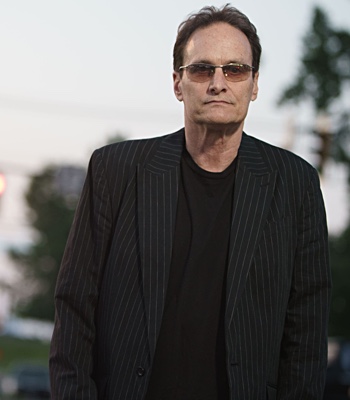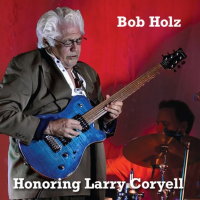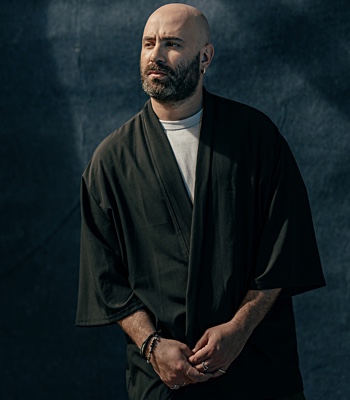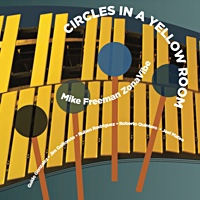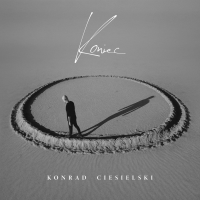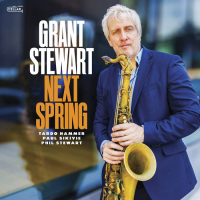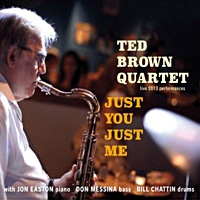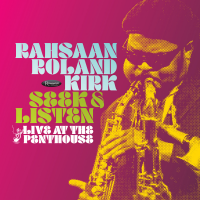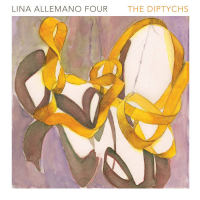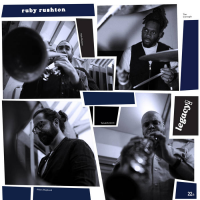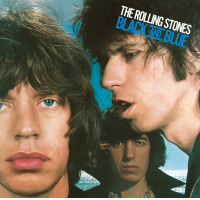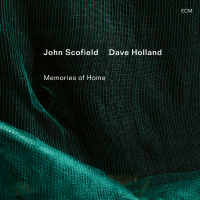Home » Jazz Articles » Extended Analysis » David Sylvian: David Sylvian: Died In The Wool - Manafon...
David Sylvian: David Sylvian: Died In The Wool - Manafon Variations
 David Sylvian
David SylvianDied In The Wool: Manafon Variations
samadhisound
2011
As the world becomes a smaller place, so, paradoxically, do musical communities expand to reach around it. British singer/composer David Sylvian—first of 1980s pop group Japan, but then a solo artist taking increasing chances with each successive album—has been busting down boundaries of geography and genre since 1984, when he released his first solo album, Brilliant Trees (Virgin), bringing together Fourth World progenitor, trumpeter Jon Hassell, expat Canadian, trumpeter Kenny Wheeler, German multi-instrumentalist Holger Czukay and Japanese keyboardist Ryuichi Sakamoto. As the years passed, Sylvian further expanded his community while moving further and further away from the radio-friendly but still experimental Secrets of the Beehive (Virgin, 1987), and his last studio recording for Virgin, 1999's Dead Bees on a Cake. Moving into the 21st century with his own samadhisound label, Sylvian began embracing even more outré directions, shaping austere songs around the free improvisations of artists like saxophonist Evan Parker, guitarist Keith Rowe and no-input mixer performer Toshimaru Nakamura. 2009's tremendous Manafon (samadhisound) completely reshaped the concept of songwriting by building songs from the top down, rather than the bottom up.
Died In The Wool twists it even further. While five of the 12 tracks on the first disc of this two-CD set are songs from Manafon, this is not a remix album like The Good Son VS The Only Daughter (samadhisound, 2004), where material from Sylvian's collaboration with guitarists Christian Fennesz and the late Derek Bailey, Blemish (samadhisound, 2003), was given broader treatment. Instead, Died In The Wool uses Manafon as grist for further compositional growth—Variations, as it says in the album's subtitle. In particular through the use of a string quartet on much of the album, though this is not a simple "with strings" treatment; it's a near-complete compositional reinvention, with the help of Dai Fujikura, who collaborates with Sylvian on more than half the album. The rest of the album teams Sylvian with Jan Bang and Erik Honoré, the two co-founders/artistic directors of the Punkt festival that has created no small stir for its innovative live remix concept, and transferability that allows it to move from its home base in Kristiansand, Norway—where Sylvian will be Artist in Residence for the 2011 edition—to other cities like Mannheim, London and, most recently, Tallinn.
The intersection of the Punkt aesthetic and Sylvian's seems a natural one, given the laboratory-like nature of the festival and Sylvian's increasingly exploratory approach to songwriting, and there's been even more intersection, beyond remixing Secrets of the Beehive's "Mother and Child" on Sylvian's compilation, Camphor (Virgin, 2002); Sylvian contributed spoken word to trumpeter Arve Henriksen's groundbreaking Cartography (ECM, 2009), and song titles and a label for Bang's recent (and remarkable) debut, ...and poppies from Kandahar (samadhisound, 2010). Cutting Manafon's "Emily Dickenson" to nearly half its original length, Bang (alone, this time, with Sylvian) retains its inherent darkness, but rather than the more decidedly electronic landscape of the original—in spite, perhaps, of his working solely with samples that include pianist Christian Wallumrod—Bang's approach leans more towards an organic-sounding, contemporary classical ambiance. Bang and Honoré's reimagining of Manafon's yet more oblique title track pushes it into even more foreboding territory, while managing, with the help of Rowe and trumpeter Franz Hautzinger, to retaining its sense of near-stasis and, at the same time, significantly more defined form.
Sylvian enlists usual suspects like Manafon<'s Parker and Nakaumra for the new material, along with percussionist Eddie Prevost and saxophonist John Butcher, who appeared on Amplified Gesture, the companion film to Manafon, but not the album. He also recruits Henriksen in sampled form, on the "A Certain Slant of Light"—which, along with the simple, four-chord form of "I Should Not Dare," represents Died In The Wool's most overtly song-structured piece, and a harkening in spirit, if not letter, to Sylvian's more conventional writing (but never conventional soundscaping) of Gone to Earth (Virgin, 1986). The trumpeter also appears—in the flesh this time, along with Butcher, Prévost and others—on "When We Return You Won't Recognise Us," the 18-minute free improv which occupies the entire second, bonus disc, and is the first release, on CD, of a sound installation commissioned for the Biennial of Canaries 2008-2009, and which will also be featured at Punkt 2011. A hauntingly beautiful piece—combining these masterful sonic explorers with an equally searching string sextet, directed by Fujikura—it explores ambient territory while commanding attention through movement that's more often than not textural rather than melodic.
If Manafon was a masterpiece that found new ways to shape music, then Died In The Wool is equally important, as it eschews the concept of remix and, in its place, aims for reinvention—re-composition that takes place, in multiple degrees of separation, from the founding material that was the previous album's inspiration. That Sylvian has evolved from the post-punk art-rock of Japan into an artist pushing, pulling and, in many cases, completely dissolving boundaries—while, at the same time, evolving new compositional methods—is something that simply could not have been predicted more than 30 years ago, when he first emerged. Now at the vanguard of creative songwriting, and part of an ever-expanding experimental musical community that crosses continents and oceans, time and space, the only thing that's predictable about David Sylvian is his absolute and utter unpredictability.
Tracks: CD1: Small Metal Gods; Died in the Wool; I Should Not Dare (for N.O.); Random Acts of Senseless Violence; A Certain Slant of Light (for M.K.); Anomaly at Taw Head; Snow White in Appalachia; Emily Dickenson; The Greatest Living Englishman (coda); Anomaly at Taw Head (a haunting); Manafon; The Last Days of December. CD2: When We Return You Won't Recognise Us.
Personnel: David Sylvian: vocal (CD1), sampling (CD1#2, CD1#6, CD1#10), electronics (CD1#2, CD1#6), guitar (CD1#3), keyboards (CD1#4, CD1#7), acoustic guitar (CD1#4, CD1#6); Jennifer Curtis: violin (CD1#1, CD1#4, CD1#6-7, CD1#9-10, CD1#12); Erik Carlson: violin (CD1#1, CD1#6-7, CD1#9-10, CD1#12); Margaret Dyer: viola (CD1#1, CD1#6-7, CD1#9-10, CD1#12); Chris Gross: cello (CD1#1, CD1#6-7, CD1#9-10, CD1#12); Dai Fujikara: string composition (CD1#1, CD1#7, CD1#9), clarinet samples, as performed by Kate Romano (CD1#2), string arrangement (CD1#4, CD1#6, CD1#10), string conductor (CD1#1, CD1#6-7, CD1#9, CD1#10), flute arrangement (CD1#10), flute conductor (CD1#10), original string arrangement sample (CD1#11); Eddie Prévost: percussion (CD1#2, CD2); Steve Jansen: cymbals (CD1#2), Elysian String Quartet direction (CD2); Toshimaru Nakamura: no-input mixing board (CD1#2, CD1#6, CD2); Keith Rowe: guitar (CD1#2, CD1#4, CD1#6-7, CD1#11); Jan Bang: additional samples (CD1#2), string arrangement (CD1#3), samples (CD1#3, CD1#5, CD1#8, CD1#11); Erik Honoré: additional samples (CD1#2), cello treatments (CD1#2), synthesizer (CD1#5), samples (CD1#5, CD1#11); Hildur Gudnadottir: cello (sampled) (CD1#2); Christian Fennesz: guitar (CD1#3-4, CD1#7), laptop (CD1#3-4, CD1#7); Evan Parker: saxophone (CD1#3, CD1#6, CD1#10); Ståle Storløkken: sampled synthesizer (CD1#3); John Tilbury: piano (CD1#4, CD1#6-7); Wener Dafeldecker: acoustic bass (CD1#4, CD1#7); Michael Moser: cello (CD1#4, CD1#7); Franz Hautzinger: trumpet (CD1#4, CD1#11); Michi Wiancho: violin (CD1#4); Wendy Richman: viola (CD1#4); Katinka Kleijn: cello (CD1#4); Arve Henriksen: sampled trumpet (CD1#5), trumpet (CD2); Helge Sten: sampled guitar (CD1#5); Sachiko M.: sine wave sampler (CD1#6); Marcio Mattos: cello (CD1#6); Christian Wallumrød: sampled piano (CD1#8); Tetzui Akiyama: electric and acoustic guitar (CD1#9); Otomo Yoshide: turntables (CD1#9); Claire Chase: bass flute (CD1#10, CD1#12); John Butcher: saxophone (CD2); Günter Müller: iPods (CD2); Emma Smith: violin (CD2); Jennymay Logan: violin (CD2); Vincent Sipprell: viola (CD2); Laura Moody: cello (CD2); Ros Stephen: violin (CD2); Charlie Cross: viola (CD2).
Track Listing
CD1: Small Metal Gods; Died in the Wool; I Should Not Dare (for N.O.); Random Acts of Senseless Violence; A Certain Slant of Light (for M.K.); Anomaly at Taw Head; Snow White in Appalachia; Emily Dickinson; The Greatest Living Englishman (coda); Anomaly at Taw Head (a haunting); Manafon; The Last Days of December. CD2: When We Return You Won't Recognise Us.
Personnel
David Sylvian
vocalsDavid Sylvian: vocal (CD1), sampling (CD1#2, CD1#6, CD1#10), electronics (CD1#2, CD1#6), guitar (CD1#3), keyboards (CD1#4, CD1#7), acoustic guitar (CD1#4, CD1#6); Jennifer Curtis: violin (CD1#1, CD1#4, CD1#6-7, CD1#9-10, CD1#12); Erik Carlson: violin (CD1#1, CD1#6-7, CD1#9-10, CD1#12); Margaret Dyer: viola (CD1#1, CD1#6-7, CD1#9-10, CD1#12); Chris Gross: cello (CD1#1, CD1#6-7, CD1#9-10, CD1#12); Dai Fujikara: string composition (CD1#1, CD1#7, CD1#9), clarinet samples, as performed by Kate Romano (CD1#2), string arrangement (CD1#4, CD1#6, CD1#10), string conductor (CD1#1, CD1#6-7, CD1#9, CD1#10), flute arrangement (CD1#10), flute conductor (CD1#10), original string arrangement sample (CD1#11); Eddie Prévost: percussion (CD1#2, CD2); Steve Jansen: cymbals (CD1#2), Elysian String Quartet direction (CD2); Toshimaru Nakamura: no-input mixing board (CD1#2, CD1#6, CD2); Keith Rowe: guitar (CD1#2, CD1#4, CD1#6-7, CD1#11); Jan Bang: additional samples (CD1#2), string arrangement (CD1#3), samples (CD1#3, CD1#5, CD1#8, CD1#11); Erik Honoré: additional samples (CD1#2), cello treatments (CD1#2), synthesizer (CD1#5), samples (CD1#5, CD1#11); Hildur Gudnadottir: cello (sampled) (CD1#2); Christian Fennesz: guitar (CD1#3-4, CD1#7), laptop (CD1#3-4, CD1#7); Evan Parker: saxophone (CD1#3, CD1#6, CD1#10); Ståle Storløkken: sampled synthesizer (CD1#3); John Tilbury: piano (CD1#4, CD1#6-7); Wener Dafeldecker: acoustic bass (CD1#4, CD1#7); Michael Moser: cello (CD1#4, CD1#7); Franz Hautzinger: trumpet (CD1#4, CD1#11); Michi Wiancho: violin (CD1#4); Wendy Richman: viola (CD1#4); Katinka Kleijn: cello (CD1#4); Arve Henriksen: sampled trumpet (CD1#5), trumpet (CD2); Helge Sten: sampled guitar (CD1#5); Sachiko M.: sine wave sampler (CD1#6); Marcio Mattos: cello (CD1#6); Christian Wallumrød: sampled piano (CD1#8); Tetzui Akiyama: electric and acoustic guitar (CD1#9); Otomo Yoshide: turntables (CD1#9); Claire Chase: bass flute (CD1#10, CD1#12); John Butcher: saxophone (CD2); Günter Müller: iPods (CD2); Emma Smith: violin (CD2); Jennymay Logan: violin (CD2); Vincent Sipprell: viola (CD2); Laura Moody: cello (CD2); Ros Stephen: violin (CD2); Charlie Cross: viola (CD2).
Album information
Title: Died In The Wool - Manafon Variations | Year Released: 2011 | Record Label: SamadhiSound
Tags
PREVIOUS / NEXT
Support All About Jazz
 All About Jazz has been a pillar of jazz since 1995, championing it as an art form and, more importantly, supporting the musicians who make it. Our enduring commitment has made "AAJ" one of the most culturally important websites of its kind, read by hundreds of thousands of fans, musicians and industry figures every month.
All About Jazz has been a pillar of jazz since 1995, championing it as an art form and, more importantly, supporting the musicians who make it. Our enduring commitment has made "AAJ" one of the most culturally important websites of its kind, read by hundreds of thousands of fans, musicians and industry figures every month.





